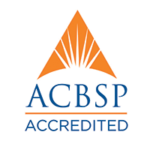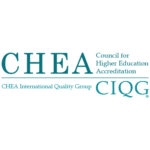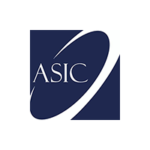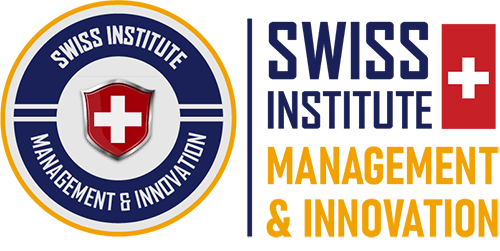Master in the most sought after industryTriple Degree from UK, France, and Switzerland
The global logistics industry is facing a shortage of skilled workers able to help meet complex supply chain challenges and sustain the industry’s estimated 5 percent growth rate, according to a new report commissioned by the World Bank (JOC, 2020)
The objective of the Master in Logistics and Supply Chain Management of SIMI is to broaden learners’ understanding of logistics and supply chain management and is designed for those who wish to prepare for a first professional role and future career in the field. It is also suitable for logistics and supply chain professionals in the early stages of their career looking to enhance their knowledge and skills and move to the next level professionally.
Successful completion of this qualification will equip learners with the specialist knowledge and skills needed to further their career as a logistics and supply chain professional
After finish, the students will received the UK Accredited Diploma, OTHM Level 7 Diploma in Logistics and Supply Chain Management, Master in Logistics and Supply Chain Management from Horizons University, France and the Master in a nother major (involve in Logistics) from SIMI Swiss.
After completing the Master in Logistics & Supply Chain Management, the learners will be able to:
- Understand the strategic, value-adding role of logistics in supply networks. It aims to impart learners with a thorough understanding of key theoretical and operational aspects of managing logistics, specifically transportation, storage/warehousing, and packaging. The related considerations for business competitiveness and operational efficiency are emphasized as is the interdependency between operational, technological, and regulatory aspects.
- The learners have in-depth knowledge about planning processes across all key aspects of supply chain management.
- Understand the relevance of each of the planning processes, the associated information requirements, and modeling and analytic techniques are covered.
- Thorough understanding of procurement and supply management from a strategic, technological, process and relationship perspective. The goal is to provide insights on the role of procurement within supply chain management, the tools and techniques to assess sourcing options, the negotiation and contractual issues encountered with suppliers, effective supplier relationship management and technological enablers in procurement.
- Develop learners’ understanding of supply chain and operations management, including its scope, impact and importance as well as the strategic decisions that need to be made in today’s world of global supply and global markets, taking into account the major competitive drivers. The unit discusses supply chain and operations management practices and approaches in a range of contexts.
- Develop learners’ understanding, knowledge and skills of sustainable operations management, including key elements of sustainability and their importance to businesses, the business drivers and barriers affecting the move towards sustainability, the different practices across the supply chain that can be worked upon to improve sustainability as well as the performance measures and the business impact of sustainability. A variety of different sectors are explored.
- Develop learners’ understanding of research principles including the formulation of research proposals, literature reviews, referencing, and data collection using interviews and surveys, questionnaire design, statistical analysis using SPSS, qualitative data, and methods for drawing conclusions from the analyzed data.
The Master of Logistics and Supply Chain Management consists of 6 mandatory units for a combined total of 120 credits, 1200 hours Total Qualification Time (TQT), and 600 Guided Learning Hours (GLH) for the completed qualification. After finish the mandatory units, there is a thesis defense in front of the SIMI academic board.
Mandatory units
- Logistics Management (20 credits)
- Supply Chain Planning, Modelling and Analytics (20 credits)
- Procurement and Supply Management (20 credits)
- Supply Chain and Operations Strategy (20 credits)
- Sustainable Operations Management (20 credits)
- Business Research Methods (20 credits)
- Thesis (30 credits)
Duration and delivery
The Master of Logistics and Supply Chain Management is designed to allocate one academic year to full-time learning, but it is also versatility delivery to accommodate part-time and distance learning/ hybrid learning.
The qualification is delivered face-to-face, through lectures, tutorials, seminars, distance, online by SIMI approved centers only.
Assessment and verification
All units within this qualification are internally assessed by the center and externally verified by SIMI. The qualifications are criterion-referenced, based on the achievement of all the specified learning outcomes.
To achieve a ‘pass’ for a unit, learners must provide evidence to demonstrate that they have fulfilled all the learning outcomes and meet the standards specified by all assessment criteria. A judgment that the learners have successfully fulfilled the assessment criteria is made by the Assessor.
The Assessor should provide an audit trail showing how the judgment of the learners’ overall achievement has been arrived at.
Entry requirements
For entry onto the Master in Logistics and Supply Chain Management, learners must possess:
- An honors degree in a related subject or UK level 6 diploma or an equivalent overseas qualification
- Mature learners with management experience (learners must check with the delivery center)
- Learners must be 21 years old or older at the beginning of the course
- English requirements: If a learner is not from a predominantly English speaking country, proof of English language proficiency must be provided.
English requirements
- Common European Framework of Reference (CEFR) level B2 or equivalent
- IELTS 5.5; Reading and Writing must be at 5.5 or equivalent
The Master in Logistics & Supply Chain is a triple degree program. Each qualification is fully accredited and recognized. This will help the learners more opportunities to get on practical knowledge and also have more chances for labor markets.
Accreditations and Recognitions of Horizons University, France

Ministry of Education, France
Paris Regional Professional Training Control Department

Accreditation Council for Business Schools & Programs (ACBSP)

European Council for Business Education (ECBE)

European Association for Distance Learning (EADL)

CHEA - Council for Higher Education Accreditation

Accreditation for International Schools, Colleges, & Universities, ASIC, UK

ATHEA - Institutional Member

FEDE
Accreditations and Recognitions of OTHM Level 7 Diploma in Logistics and Supply Chain Management

Ofqual Qualification Number: 603/5865/8
Accreditation & Recognitions of OTHM United Kingdom

Ofqual United Kingdom

